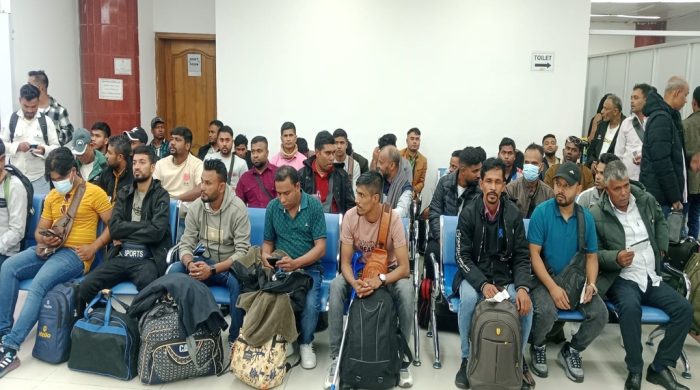Alarming death toll from winter illness

- Update Time : Tuesday, December 20, 2022
- 87 Time View

AN UNUSUALLY high number of deaths from winter related illness is a clear sign of the government’s unpreparedness. A report of the Health Emergency Operation Centre at the Directorate General of Health Services on December 18 confirmed about 38 deaths from respiratory illness in six districts of the country. The Rangpur divisional office of the health services reported 71 deaths in the eight districts of the division on December 15–18. In Rangpur division, a mild cold wave was already reported with 9.3°C in Chuadanga on December 17. As many as 3,13,101 people, mostly children and elderly, were hospitalised across the country in November–December. Health officials flagged the high number of deaths at early winter, but considered it as normal for winter when flu and other cold related diseases take a toll on public health. However, for an annual seasonal event, the health ministry and other bodies concerned appeared rather unprepared. The lack of government initiative to tackle winter-related diseases in border towns of Bangladesh is particularly worrying given that the Bangladesh Meteorological Department hinted at an early arrival of winter in mid-October.
In Rangpur division, health professionals have talked about late hospitalisation and the crisis of medical oxygen in public hospitals for a higher number of deaths. Public health experts, however, blamed the government for its lack of preventive effort in the districts where winter is more severe than other districts. Local representatives said that early government support could have helped people living in poverty-stricken areas, especially in hundreds of char areas. No government support has so far reached the poor people. The government programme to distribute quilts and other relief for winter may begin in Rangpur on December 20. The unpreparedness is not witnessed in the health sector alone. Heavy fog has also affected the highway traffic. The movement of ferries and vehicles on two major channels were suspended for several hours on December 18. It is inexcusable that the road transport and highway authorities or the ministry of shipping do not have a preconceived plan to better tackle any such events of heavy fog when passengers and vehicles are stranded from the suspension of ferry services. It is true that the seasonal events are not an absolutely pre-determined issue, but better preparation and forecast could definitely minimise the suffering of the people.
The government must, under the circumstances, take the recommendation of public health experts and arrange an immediate vaccination programme for children and the elderly against rotavirus and flu. At the same time, the government should also expedite the winter relief and support programme including distribution of winter clothing, shelter to the homeless, and relocation of those who are living in shanty towns. Meanwhile, the road transport authorities and shipping ministry should also act well in advance taking cues from the weather forecast and provide the public with alternative travel routes and options.


























